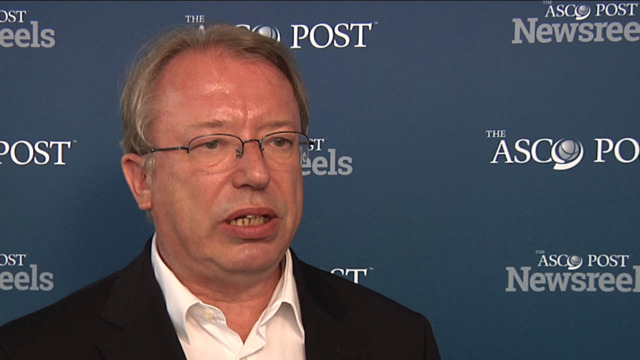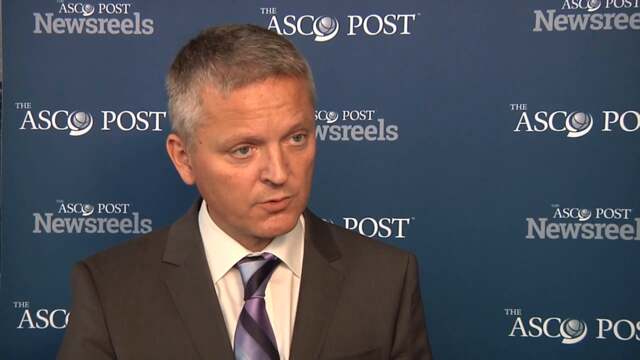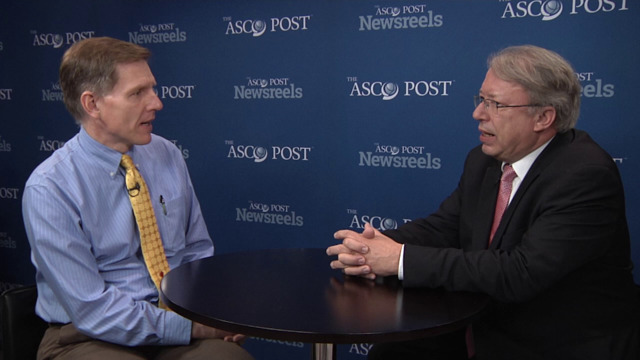Dung T. Le, MD, and Axel Grothey, MD, on PD-1 Blockade in Tumors With Mismatch Repair Deficiency
2015 ASCO Annual Meeting
Dung T. Le, MD, of Sidney Kimmel Comprehensive Cancer Center at Johns Hopkins University, and Axel Grothey, MD, of the Mayo Clinic, discuss how mismatch repair status predicts clinical benefit of immune checkpoint blockade with pembrolizumab (Abstract LBA100).
Christopher Sweeney, MBBS
Christopher Sweeney, MBBS, of Dana-Farber Cancer Institute discusses the EnzaMet and EnzaRad study designs, eligibility requirements, and endpoints (Abstracts TPS5077 and TPS5078).
Claus Garbe, MD
Claus Garbe, MD, of the University of Tuebingen, discusses the survival of sentinel lymph node biopsy–positive melanoma patients with and without complete lymph node dissection (Abstract LBA9002).
Patrick Schöffski, MD
Patrick Schöffski, MD, of the University Hospital Leuven, discusses a phase III study in which he and his colleagues found, for the first time in soft-tissue sarcomas, a significant overall survival benefit of a single agent compared to a standard treatment (Abstract LBA10502).
Claus Garbe, MD, and Anthony J. Olszanski, RPh, MD
Claus Garbe, MD, of the University of Tuebingen, and Anthony J. Olszanski, RPh, MD, of Fox Chase Cancer Center, discuss the survival of sentinel lymph node-positive melanoma patients with and without complete lymph node dissection (Abstract LBA9002).
James H. Doroshow, MD
James H. Doroshow, MD, of the National Cancer Institute, describes a new precision medicine initiative called the MATCH trial: Molecular Analysis for Therapy Choice. In 2,400 NCI clinical trial sites, 3,000 patients will be screened and their tumors analyzed to determine whether they contain genetic abnormalities for which a targeted drug exists.





